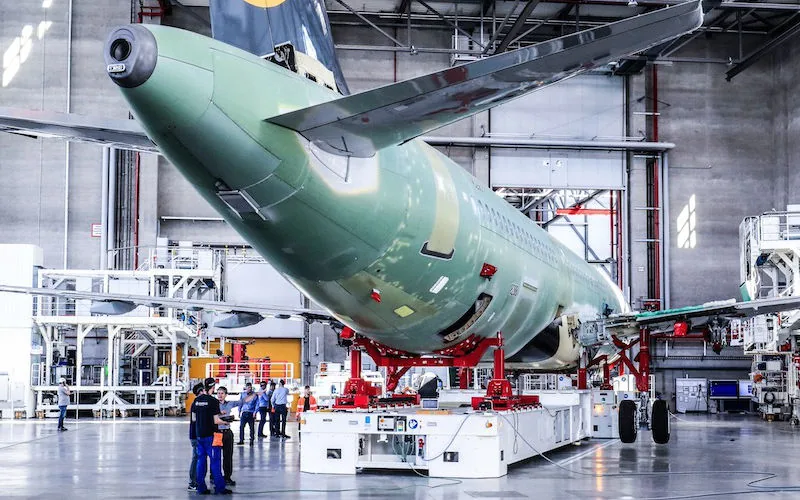Airbus Expands Global Footprint with Acquisition of Spirit AeroSystems Sites

Several industrial sites of American subcontractor Spirit AeroSystems, including its factory in Casablanca, are entering Airbus’ fold.
Airbus is taking a new flight. In a press release, the aircraft manufacturer announced on Monday that it had finalized an agreement to acquire several industrial sites from the American subcontractor Spirit AeroSystems. This operation, which should be finalized in the third quarter of 2025, subject to regulatory approvals and other usual conditions, should allow it to "ensure supply stability" for its commercial aircraft and strengthen control over "key work" in its programs.
After the finalization of the operation, Airbus will not only become the owner of several Spirit sites around the world, including the one in Saint-Nazaire (Loire-Atlantique), where A350 fuselage sections are manufactured, as well as the Kinston plant (North Carolina, United States) also specialized in this program, but it will also recover the production of A220 pylons in Wichita (Kansas), as well as A220 wings and fuselage sections in Belfast (Northern Ireland) and Casablanca (Morocco). Not to mention the production of parts for A320 and A350 wings carried out in Prestwick (Scotland).
Airbus will pay the symbolic sum of one dollar for these Spirit AeroSystems assets. However, the European aircraft manufacturer will have to provide Spirit AeroSystems with interest-free credit lines totaling $200 million to support the continuity of operations related to its programs until the completion of the acquisition. For its part, Spirit will pay compensation of $439 million to Airbus, a sum revised downwards from the $559 million envisaged in the July 2024 agreement.
Born from an outsourcing of industrial activities by Boeing in 2005, Spirit AeroSystems has become an essential supplier for some of Airbus and Boeing’s programs, recalls the specialized site Usine Nouvelle, noting that the company has nevertheless been accumulating industrial failures, management instability, repeated quality defects on fuselages, insufficient investments and a lack of know-how transfer between its different sites for several years.
Related Articles
-

Morocco’s Olive Oil Exports Surge Despite Production Slump: Minister Explains Paradox
14 September 2025
-

Budget Traveler’s Dream: £30 Flight Unlocks Moroccan Luxury for British YouTuber
14 September 2025
-

Morocco’s Tax Evasion Loophole: Adouls Hampered in Real Estate Tax Collection
13 September 2025
-

Altice’s $24 Billion Debt Crisis: Patrick Drahi Eyes Sale of Moroccan Call Center Giant Intelcia
13 September 2025
-

Moroccan Dirham Surges Against Dollar as Official Reserves Hit 414.8 Billion
13 September 2025